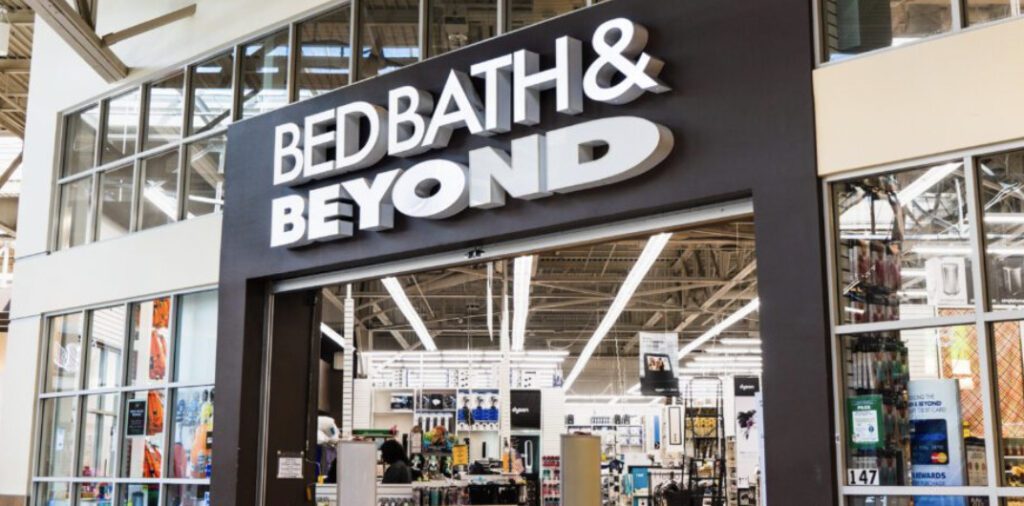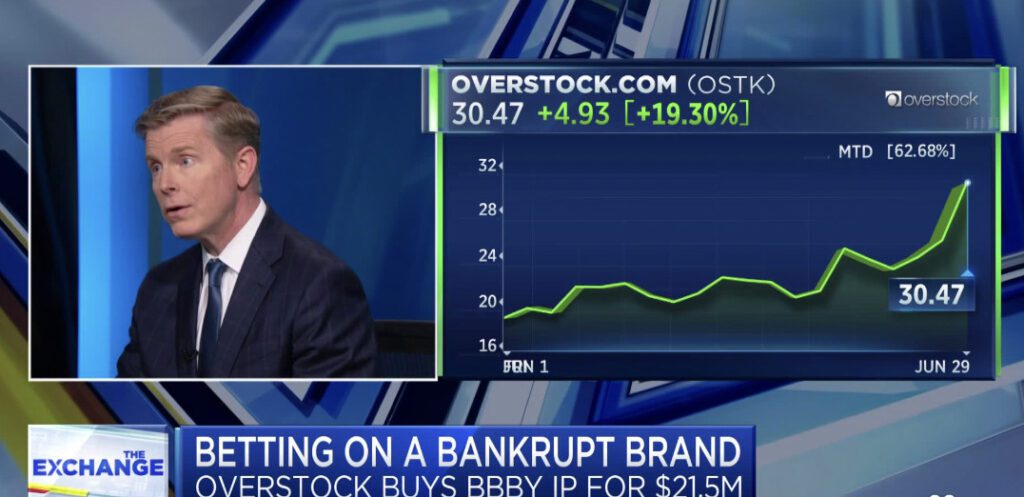Despite the imminent declaration of Bed Bath & Beyond shares as worthless, they continue to be traded at significant volumes. On August 16, the stricken home retailer witnessed over 15 million transactions, even after filing for Chapter 11 bankruptcy protection in late April.
The continuous failure of cash-raising efforts pushed the company to close its brick-and-mortar stores and auction its intellectual property, which was acquired by Overstock. To capitalize on the established brand name, Overstock plans to adopt Bed Bath & Beyond’s stock ticker, BBBY. The original company’s physical stores are now closed and its assets will be liquidated.
Bed Bath & Beyond had previously cautioned about the highly speculative nature of trading in its stock during the Chapter 11 cases. It emphasized that trading prices may not align with the actual recovery by the holders of the company’s securities. The subsequent bankruptcy plan published in July confirmed that all allowed interests in BBBY would be canceled, and holders would not be entitled to any recovery or distribution under the Plan.
Common shareholders of Bed Bath & Beyond face a grim future as their investments become essentially worthless. With a market cap of just $152.25 million, the common shareholders rank behind several tiers of bondholders in the reimbursement food chain and have no voting rights in the plan. Although the company’s planned confirmation hearing is scheduled for September 12, recent stock purchases lack positive catalysts.
Last year, activist investor Ryan Cohen raised optimism by suggesting that the successful Buy Buy Baby unit had the potential to achieve a billion-dollar valuation. However, no qualified bids materialized, and Dream On Me eventually acquired the intellectual property assets of the baby segment for $15.5 million. This indicates that current investors trading in Bed Bath & Beyond’s stock may be engaged in doomed speculation, ultimately leading to disappointment.

Since the beginning of the year, Bed Bath & Beyond’s stock has plummeted by over 91%, closing at a mere 21 cents per share on Wednesday. Retail traders who invested are likely to witness the disappearance of their investments. Cole Smead, CEO and portfolio manager at Smead Capital Management, criticized the society for allowing meme stock trading, drug use, and gambling to cause destruction among users while turning a blind eye to profit.
Overstock, which acquired Bed Bath & Beyond’s intellectual property, witnessed a decline of 36% in its stock price, closing at $24.22 per share on Wednesday. However, the shares remained up by 25% year to date. Michael Pachter, managing director of equity research at Wedbush Securities, pointed out increased downloads of the Bed Bath & Beyond app after the rebrand launch in August. The app’s climb to the top quartile of the download list suggests that the brand recognition is working for Overstock.
Pachter acknowledged that investors are eagerly awaiting revenue growth reports to validate the sales boost resulting from the rebrand. Although optimistic, he emphasized the need to wait for a quarter or two before drawing conclusions. Regarding the original Bed Bath & Beyond stock, Pachter expressed doubt that there is any value left for shareholders. Despite Overstock’s payment of $21 million, the company’s debt surpasses its assets.
To correct an error, Overstock shares closed at $24.22 per share on Wednesday, down 36% from the previous high of $37.86 per share in August. The earlier version misstated the percentage decrease.

For up to date eCommerce news, be sure to bookmark the Elite eCommerce Blog.



